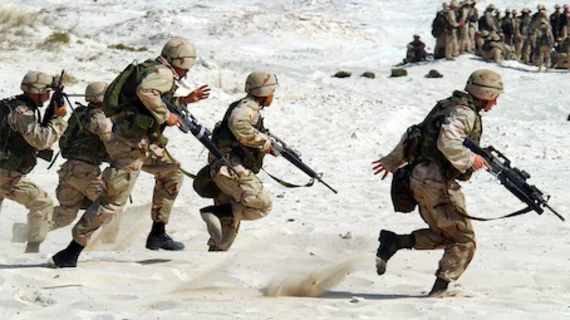$3.1M project will combine neuroimaging, AI to enhance Army battlefield training and care
Rensselaer Polytechnic Institute researchers are launching a new project that combines neuroimaging with artificial intelligence to help train Army field medics, the university announced Wednesday.
The U.S. Army Combat Capabilities Development Command Soldier Center is supporting the Troy, New York, institution’s efforts with a $3.1 million grant. These funds will help develop a faster and standardized process for prolonged field care certification (PFC)—triage care provided on the battlefield before patients are evacuated to the hospital.
“If we can make it work, this would be a game-changer for the Army,” Suvranu De, co-director of the Center for Modeling and Simulation in Medicine (CeMSIM) at Rensselaer, said in a statement.
Their first order of business is to create an artificial intelligence-powered system to automatically evaluate a medic's performance during prolonged field care certification. De and colleagues noted that the current process uses human scoring, which is both subjective and time-consuming.
As participants complete simulation-based training, the researchers will gather “multimodal” information, including brain activity captured during neuroimaging, eye movement gathered via gaze tracking and hand motions. All this information will be integrated into AI models to auto-classify performance and determine the “gold standard of PFC mastery,” De explained.
“We’re going to see, if we couple all the information in deep learning environments, can we look at a learner and predict whether or not that person is learning?” De noted. “This is going to be a completely automated system. It will provide a ‘go/no-go’ gauge for whether they are allowed to go into the battlefield or not.”
This isn’t the first collaborative imaging project between Rensselaer researchers and the U.S. Army. De and his CeMSIM colleague Xavier Intes, recently won a $2.2 million grant from the Department of Defense to harness neuroimaging information and improve surgeon’s technical skills.

